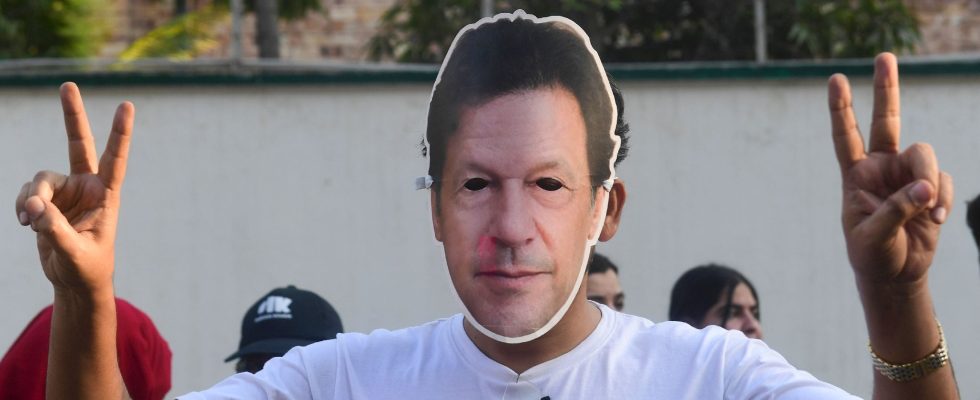Once again, Imran Khan created a surprise. It was from his prison cell in Rawalpindi, where he has been incarcerated since August 5, 2023, that the former Prime Minister managed to win the legislative elections of February 8. On the eve of the election, no one would have bet on him. He ultimately defied all odds. Against all expectations, and despite accusations of fraud hanging over the elections, the independent candidates supported by his movement, the Pakistan Justice Party (PTI), came out on top, winning nearly a hundred seats in the election. the 266 put into play.
At 71, the former captain of the national cricket team remains Pakistan’s most popular politician. His opponents and the very powerful army, which governed the country for almost three decades, nevertheless made every effort to prevent him from participating in the vote.
In recent months, Imran Khan had not hesitated to vehemently attack the army. He paid the price. In the months preceding the election, his party was decapitated, while he was declared ineligible and imprisoned. On January 30, Imran Khan was again sentenced to ten years in prison for disclosing classified documents. The next day, he received a fourteen-year prison sentence for gifts received when he was in power. Finally, on February 3, he was found guilty, alongside his wife, of illegal marriage under Islamic law. Another seven years in prison.
But this barrage of condemnations did not dissuade voters, nor did the suspension of mobile telephone services on voting day. “Despite everything that has been done to make these elections as controversial as possible, millions of people have chosen the ballot box to make themselves heard,” writes Dawn, leading Pakistani daily, the day after the election, calling for respect for the choice of citizens.
Can Imran Khan, however, return to the forefront? Unlikely. “This superb electoral success will not propel the PTI to power,” writes Michael Kugelman, director of the South Asia Institute at the Wilson Center in Washington. “This is perhaps the most important election in Pakistan’s recent history,” said Pakistani analyst Zahid Hussain. “It was a vote for hope and democracy. But the people’s mandate seems having been robbed once again.”
Deprived of an absolute majority, Imran Khan was unable to prevent the formation of a government coalition bringing together the Pakistan Muslim League of former Prime Minister Nawaz Sharif (PMLN) and the Pakistan People’s Party (PPP) of Bilawal Bhutto, the son of former Prime Minister Benazir Bhutto, assassinated in 2007. In 2022, this same coalition had, thanks to a motion of censure, led to the fall of Imran Khan, then criticized for his management of the country, in prey to a serious economic crisis.
Imran Khan’s speeches generated by AI
What will become of the former god of stadiums? “I would fight until the last ball,” the man who led Pakistan to victory in the 1992 World Cup likes to say. At the time, he pushed his teammates to fight like “tigers.” cornered.” In his political career, “the tiger” has also, several times, succeeded in turning around complicated situations. After his ouster from power in 2022, he began a rapid transformation to become a formidable opponent.
When the government, in March, banned him from broadcasting on television, he turned to social networks, notably TikTok, in a country where the median age is less than 21 years old and which has more than 70 million users. When he was subsequently deprived of a political rally, his party, the PTI, organized meetings online.
After his incarceration, Imran Khan continued his fight from his cell. The man who once enjoyed a reputation as a playboy was the first to use artificial intelligence to address his supporters via video. Last December, he broadcast a fiery speech from his prison, via a reconstruction of his voice produced using AI. On February 9, he used this same process to issue a victory statement, praising the nation’s “unprecedented response.” Cornered, the old tiger has not said his last word.
.
